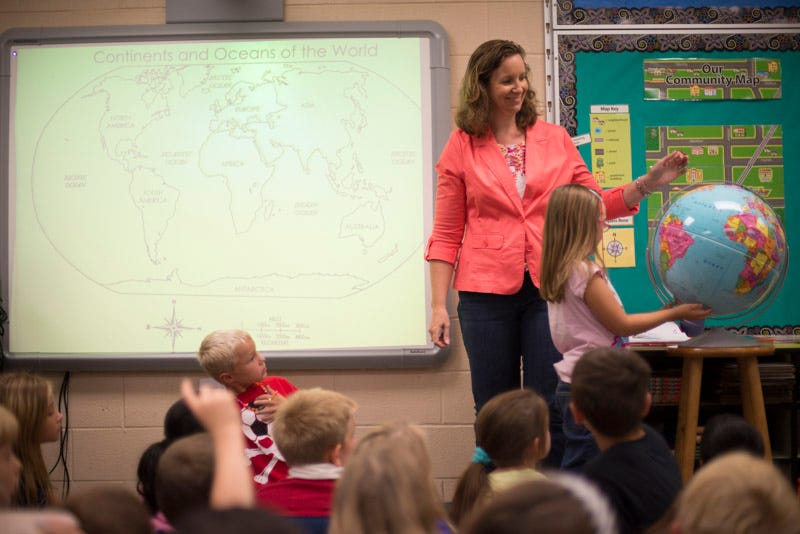Explainer: Could Educators Bargain Class Size?
It could happen with bill before the General Assembly

Class size has an impact on every student and educator. It matters in the development of relationships with students and their families. It is a huge factor in working and learning conditions. Yet current Maryland law prohibits the matter from even being discussed at the bargaining table when decisions are being made about staffing levels and funding priorities.
House Bill 1074 would make a change for the better by allowing class size to be part of local negotiations. Bill sponsor Delegate Eric Ebersole (District 12 — Baltimore and Howard counties) is a former high school math teacher who understands the importance of class size. The success of this bill would help put decisions on class size in the hands of local educators.
What Options Exist?
Some states have adopted one-size-fits-all caps by grade level. Some have adopted rules around average class sizes. Some have focused on student-to-teacher ratios. And others already include the issue as part of bargaining. House Bill 1074 would help put educators’ voices at the table when decisions about class size are made. Right now, class size is one of only two issues that are explicitly non-bargainable (the other is school calendar, in addition to “any matter that is precluded by applicable statutory law”).
HB 1074 would create the possibility for class size to be on the table during bargaining sessions. This allows educators to engage in detailed conversations about what class size should be in each district, and, theoretically, differ by grade level in a particular district.
Making the Most of the Blueprint
Gaining the ability to bargain about class size would compound the benefits in the Blueprint for Maryland’s Future and help educators ensure the high-quality implementation of the Blueprint. As the Blueprint is phased in, including class size in bargaining decisions will allow for the most district-specific solutions available to best meet the learning conditions for students and working conditions for educators.
Breaking Down the Blueprint for Maryland’s Futuremseanewsfeed.com
At the heart of the Blueprint and a world-class education is the relationship between students and educators. The expanded staffing that the Blueprint promises opens up the opportunity to provide more individualized and small group instruction for students. Making class size a subject of bargaining would help translate these gains into classrooms across the state. The Blueprint relies on giving educators the time and resources needed to do their best work developing relationships with students, families, and communities — and increased staffing and lower class sizes can help accelerate those processes.
Class size matters: to teachers and ESP and to high-achieving and struggling students alike. It matters when it comes to managing classrooms and addressing student discipline. House Bill 1074 would help to elevate this critical topic of conversation and allow educators to truly partner in the establishment of an effective learning environment through bargaining about class size.

